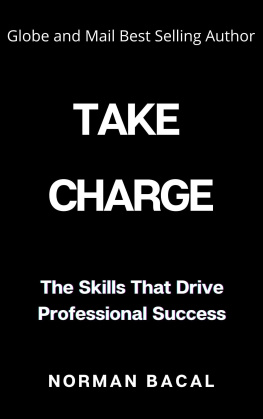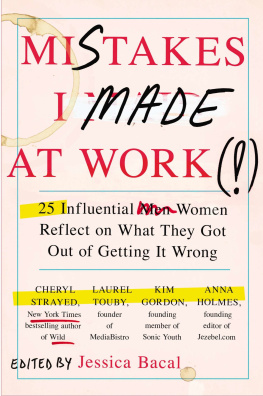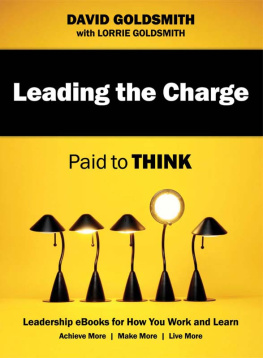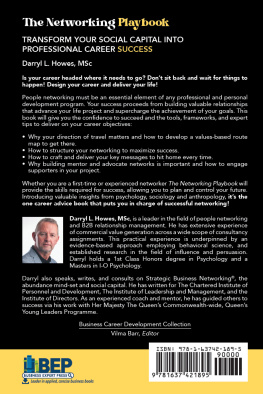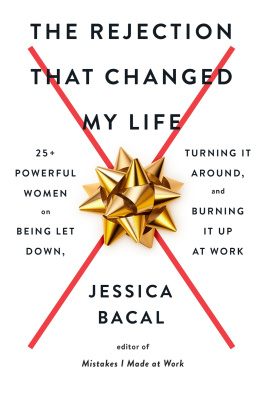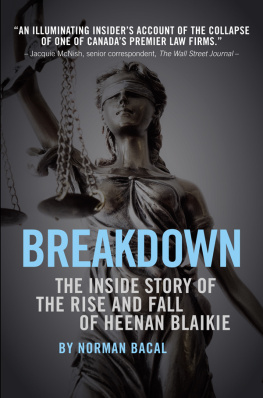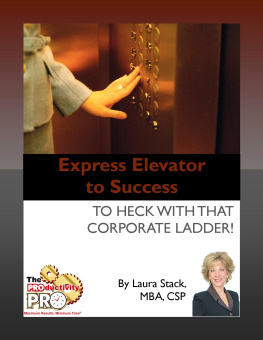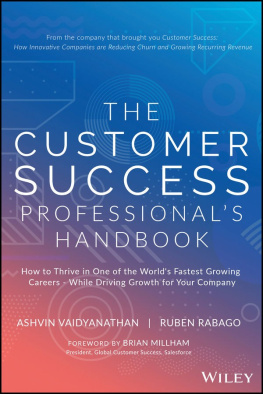Bacal - Take Charge: The Skills That Drive Professional Success
Here you can read online Bacal - Take Charge: The Skills That Drive Professional Success full text of the book (entire story) in english for free. Download pdf and epub, get meaning, cover and reviews about this ebook. year: 2021, publisher: Iguana Books, genre: Business. Description of the work, (preface) as well as reviews are available. Best literature library LitArk.com created for fans of good reading and offers a wide selection of genres:
Romance novel
Science fiction
Adventure
Detective
Science
History
Home and family
Prose
Art
Politics
Computer
Non-fiction
Religion
Business
Children
Humor
Choose a favorite category and find really read worthwhile books. Enjoy immersion in the world of imagination, feel the emotions of the characters or learn something new for yourself, make an fascinating discovery.
Take Charge: The Skills That Drive Professional Success: summary, description and annotation
We offer to read an annotation, description, summary or preface (depends on what the author of the book "Take Charge: The Skills That Drive Professional Success" wrote himself). If you haven't found the necessary information about the book — write in the comments, we will try to find it.
Bacal: author's other books
Who wrote Take Charge: The Skills That Drive Professional Success? Find out the surname, the name of the author of the book and a list of all author's works by series.
Take Charge: The Skills That Drive Professional Success — read online for free the complete book (whole text) full work
Below is the text of the book, divided by pages. System saving the place of the last page read, allows you to conveniently read the book "Take Charge: The Skills That Drive Professional Success" online for free, without having to search again every time where you left off. Put a bookmark, and you can go to the page where you finished reading at any time.
Font size:
Interval:
Bookmark:
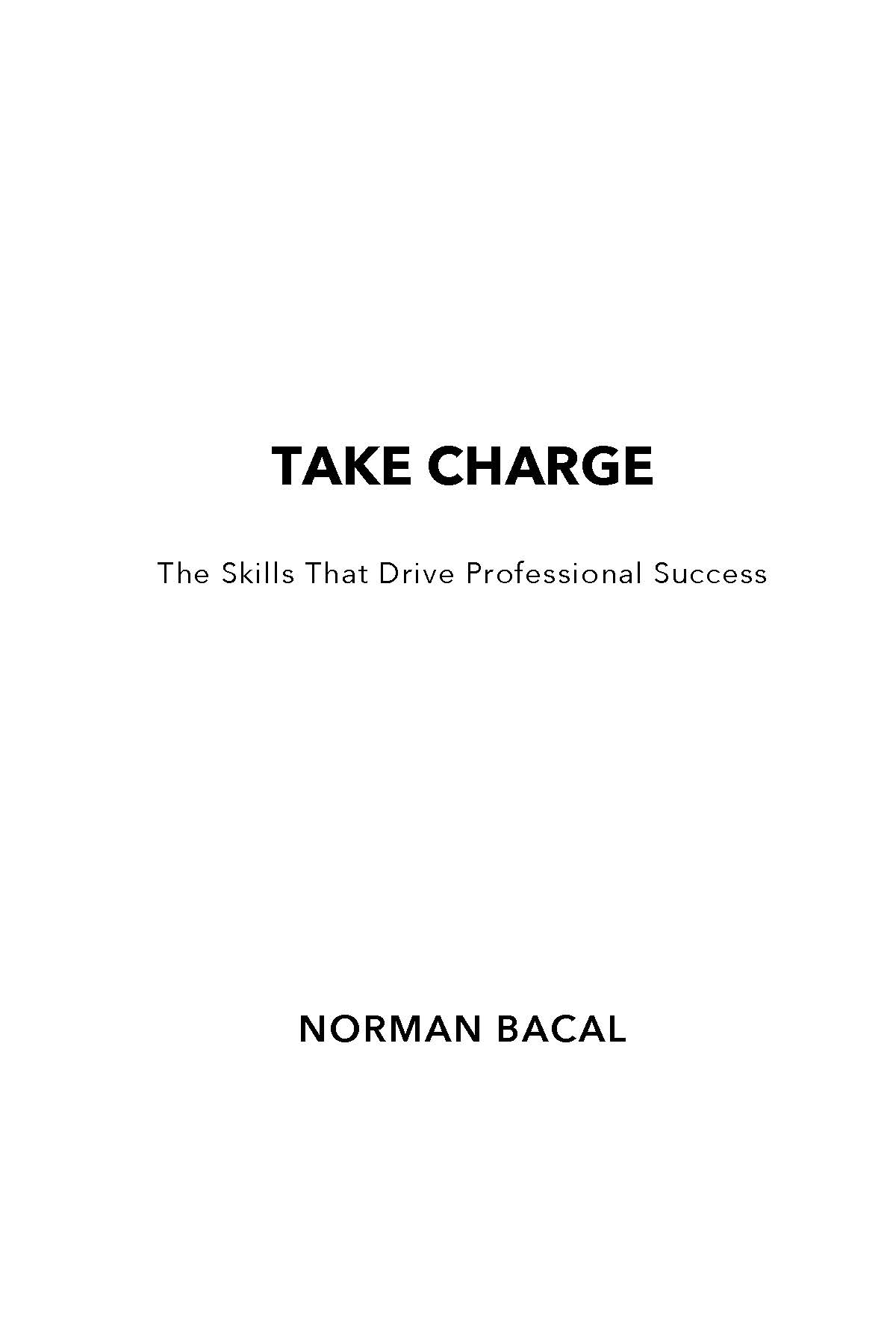
Copyright @ 2021 Norman Bacal
All rights reserved. No part of this publication may be reproduced, stored in a retrieval system or transmitted, in any form or by any means, electronic or otherwise without the prior written consent of the author.
Cover design: Sharon Bacal
ISBN 978-1-988387-21-5 (paperback)
ISBN 978-1-988387-22-2 (epub)
For more information, visit normanbacal.com.
To Sharon
Eight months ago, a young lawyer connected with me through social media. Would you have coffee? she asked. Ive just opened my own practice and I have so many career questions to sort out.
This is something I do when asked, sometimes in person, and often, virtually.
It turns out Tara had read my first book, Breakdown, and was trying to figure out how to apply its lessons, drawn from my career, to her situation as a third-year lawyer. She left our ninety-minute session with lots of advice and promised to get back to me in six months. Weve stayed in touch. Ill get to her story and progress later on.
Taras story is not unique. Over the past five years Ive had numerous mentoring sessions with lawyers, accountants, and students across the countryenough to suggest that it was time to organize the advice. Unless you hire a personal coach, which can be expensive, learning how to manage your career is something that no one teaches in a comprehensive way. Developing soft skills and having a strategic approach to your relationships are critical to your success. They were to mine.
Maybe youre a student trying to figure out where to work or how to find a job, or a young professional considering whether youre at the right firm. Maybe youre debating going out on your own, or uncertain about your progression even if you like what youre doing. I have news for you. Youre not alone. Were all living in this humungous pool of anxiety over our present and our future.
Can you survive in a big firm? Are you better suited to a medium-size firm? Will you get enough (or the right) experience in a small firm? Where will the experience be better for you? Did you survive hire-back as a trainee? Were you even able to find a position? Has an unexpected event (like a pandemic) created risk to your job security? Increased your level of fear? Whether you finished top of class, bottom of class, or middle of class, there are many reasons to be anxious.
How do you get clients? How do you keep them in a competitive environment? What skills matter? Who will teach them to you? So many questions when it comes to your future. So little guidance. And so much uncertainty that the path to success may seem mystifying.
But there is no certainty in life. No single road map to the end of the rainbow. The one thing most young professionals do not know, regardless of how book-smart they are, is how to take charge of their future and plan for their success.
You have a choice. You can float along, hoping everything works out; or you can take charge of your future beginning right now. There are tools you need to survive and thrive. This book shows them to you and teaches you how to use them.
Only you can take charge of your career path and do what makes sense for younot simply what seems to make sense. Can you afford to wait to get started?
Many of the examples I provide are directly applicable to law students and lawyers, but the lessons in these chapters apply across the board to anyone who wants to have a successful career in any field.
Your journey begins with the application to professional or business school. So many of the professionals I know fell into their practice through process of elimination: I couldnt think of anything else to be. Ask a hundred lawyers. Many of them will tell you the same thing. The passionate advocates, the rainmakers, the gifted technicians, the successful business executivesmost of us chose law because well, just because. We had no idea whether we might succeed. There was no one out there telling us how to do it. My first exposure to lawyers came through television characters. I worried I would never be as eloquent as Perry Mason, or, to use more modern examples, as passionate and cutthroat as Harvey Spector or as clever as Saul Goodman. Perhaps I would be no better than Lionel Hutz. I applied anyway.
Like most students when they graduate, I discovered rather quickly and rather harshly that little I had learned in law school would be of practical value to the rest of my entire career. In a 2016 Gallup poll, fewer than one in four American lawyers believed that law school was worth the cost. A stunning four in five felt it had not prepared them for work.
In law school I was taught how to research legal questions, how to approach a theoretical problem, and how to think about the lawby professors who were academics. But in my first few weeks on the job at a small Montreal law firm, I couldnt understand the simplest principles of work. Why were some of the lawyers on the phone all the time? How could I actually get a client? It would take me years to find out.
I could handle the legal research and draft an argument, though I still didnt realize that my writing skills, which I thought Id perfected in law school, were no better than rudimentary, and my negotiation skills, non-existent. When I had to argue my first court motion, I was petrified. I had no idea what room to go to, where to stand, how to address a real judge. Most of all, I was afraid of publicly embarrassing myself.
For the first four or five years a larger question loomed over me. How was I to succeed? How was I to overcome the fear of failure and the discomfort of knowing there was no safety net? At what point would I go from the person who took instructions to the person who gave them? I had no clue. I felt as useless as a lump of clay.
Yet I became one of the leading entertainment lawyers in the country, well known in the world of film finance, representing not only Canadian production companies but many major US studios such as Warner Bros, Sony, and MGM. I sat on the board of directors of Lionsgate, part of the team that pushed the go button on the billion-dollar Hunger Games franchise. I turned entrepreneur and leader: builder of a Canadian law firm success story, Heenan Blaikie, a firm that I led as managing partner for sixteen years. I worked with retired prime ministers and Supreme Court justices. When I was at your stage, could I have predicted any of that? Of course not.
How did I manage my rise from obscurity? What skills did I learn along the way? What challenges did I overcome?
I was once uncertain, tentative, even shy. What happened to me and how can it happen to you?
What about others in the profession who have made their way successfully? Were they born smarter or more effective? As you will learn further on, unanimously they will tell you otherwise.
In this book Ive tried to distil the lessons I and other legal professionals learned along the way. They come from east and west, represent diverse ethnic and socio-economic backgrounds, and have been on their own unique career paths. Each of them, me included, began as that unformed lump of clay, waiting to be moulded by experience, mentors, and trial and error. We appreciate the value of our law school education, but we each discovered, in our own way, the secrets that shaped our careers.
The world has evolved considerably since I graduated law school. Success appears to be harder now. But it doesnt have to be, at least according to the professionals I have interviewed. The world may be more complex, but the secrets of success are not.
Next pageFont size:
Interval:
Bookmark:
Similar books «Take Charge: The Skills That Drive Professional Success»
Look at similar books to Take Charge: The Skills That Drive Professional Success. We have selected literature similar in name and meaning in the hope of providing readers with more options to find new, interesting, not yet read works.
Discussion, reviews of the book Take Charge: The Skills That Drive Professional Success and just readers' own opinions. Leave your comments, write what you think about the work, its meaning or the main characters. Specify what exactly you liked and what you didn't like, and why you think so.

